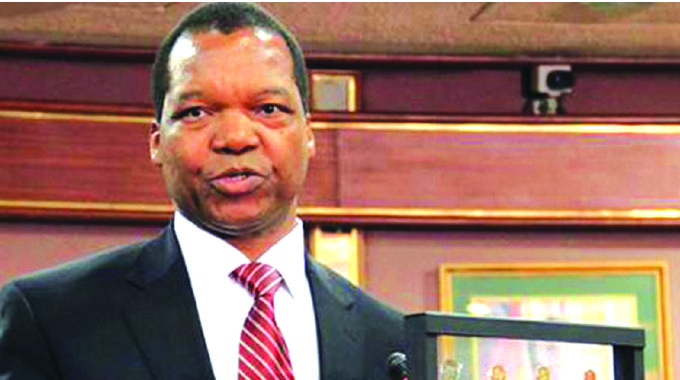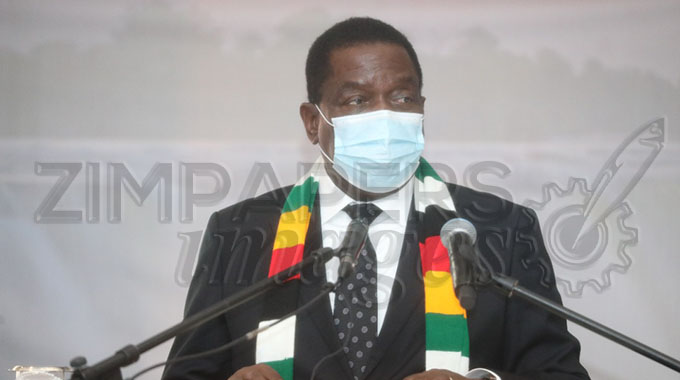Editorial Comment: Advances made in stabilising exchange rates

The Reserve Bank of Zimbabwe now appears to have managed a tight grip on the foreign currency auctions, both in allowing the auction to set realistic exchange rates and in servicing the bids reasonably promptly.
These are both vital requirements if the auction is to become the setter of the real exchange rate, at least for the productive sectors, and if the Zimbabwe dollar is to dominate the economy.
The biggest move has been to ensure that the backlog in paying out on allotments is sharply reduced and preferably eliminated.
Reserve Bank Governor John Mangudya has acknowledged this was a serious problem and this week it was reported he had found another US$100 million to pay out on bids allotted, but yet to be funded with foreign currency.
This, with other sums already paid out, should eliminate almost all the backlog.
Before the backlogs arose the auctions had tamed the foreign currency markets and had sharply reduced inflation.
Then the amount that bidders wanted to buy started rising. Some of the rise was because there was more business, thanks to economic growth, but the extra being sought was way above what steady growth should have called for.
Even with Zimbabwe’s economy being one of the fastest growing in the world, let alone Africa, growth rates hover above 5 percent, but well under 10 percent and the foreign currency auction should just have to deal with that sort of growth.
Some may argue that the growth is leading to more consumer spending, especially as the growth is fairly widely spread and there are households that once bought almost nothing now buying more essentials, with a lot produced in Zimbabwe.
But the growth rate takes that into account, since that extra spending is part of the growth.
Demand for imported luxury consumer goods might well be rising, considering the sharp inequalities in the Zimbabwean economy, but these are not funded through the auctions.
The Reserve Bank investigated, and found that a large slice of the extra demand for foreign currency was not tied to rising consumer demand for the sort of products that the auctions were supposed to meet in the way of raw materials, capital equipment and the spares and consumables.
There were some legitimate reasons why a successful business might want to buy more, to build up stocks for example, but those are self-correcting since there are limits on just what can be stuffed into the warehouse.
Others must have looked at emerging backlogs and reckoned it would be a good idea to get what they wanted next month into the queue this month.
Both might make sense for an individual business, but simply made some of the problems worse, the usual problem that what is good for a single business is not necessarily good for the whole system, the tragedy of the commons.
But investigations found speculation and cheating. The speculators were borrowing the money, at the high Zimbabwean interest rates, to finance their bids, or even making bids with almost empty local currency bank accounts.
And some of the extra stuff they were planning to import was for resale at large mark-ups, with the middleman mess that has caused so much trouble re-emerging.
Others were speculating on exchange rates, or trying to get foreign currency into their bank accounts without actually spending it, or to spend it on things that were not covered by the auctions.
There were all sorts of dubious bidding, and banks, or at least some banks, were not doing the gatekeeping they were supposed to be doing.
New measures came in, including the requirement for bids to be a week in advance so the Reserve Bank, which has the authority and the means to check bank accounts, export earnings and customs records, to do the gatekeeping itself, even when a bidder was using several bank accounts in several banks to hide dealings from each bank manager.
Sometimes the banks were not at fault, they simply did not have the information.
That has seen successful bids fall to around US$36 million a week. There are some valid, but unsuccessful bids, a small number, that seem to be those where the bidder offered too little.
But we are talking about less than 3 percent of the amount sought. That tends to shoot down suggestions that the Reserve Bank was restricting allocations to build up the sum required to service the backlog. US$500 000 a week was not going to do much on the backlog.
The main thrust of the Reserve Bank was to eliminate dubious bids long before the allotment process started.
Over-low bids, basically a bidder seeking a bargain, are then dropped s the Reserve Bank moves swiftly to ending its management of the exchange rate, and instead letting it float far more in line with supply and demand.
In recent weeks the auction rate has been moving by around $4 a week, and this week reached $142,4237 against the US dollar, set on the same day that Secretary for Finance and Economic Development George Guvamatanga confirmed that the authorities want the official exchange rate to reflect fundamentals closely and eventually eliminate the gap between auction and black market rates.
The premium on the black market is never likely to be totally eliminated, since buyers in that market are funding things that the auctions cannot fund, like some luxury consumer goods, stock-piling foreign currency, holidays and illegal activity like the dangerous drug trade.
But it should be a large premium once things settle down since the demand for dubious purchases is a small fraction of the demand for legitimate businesses funded through the auctions.
The problem that arises is when businesses who either do not import directly, or import directly only a small fraction of their goods start messing around and use the black market rate when pricing in Zimbabwe dollars, even though that rate is not the one they use when they buy most of their goods and services in local currency from their major suppliers.
Admittedly some suppliers, although they buy on auction, also mess around so sometimes we need to blame the supplier rather than the shopkeeper.
Obviously the pressure by the authorities on getting those who use the auctions to cost according to what they spend, rather than use a weird costing system that bears no direct link with reality must be maintained. Cheating is unpleasant as well as damaging.
But with fundamentals largely fixed, inflation rates should shortly resume their steady fall and as they move into low figures it becomes ever easier to see exchange rates stabilise and the black market rate to start falling, not just go stable but fall, as the two rates come far closer to converging with some of the inflationary pressure that caused dipping into the black market basically eliminated.








Comments